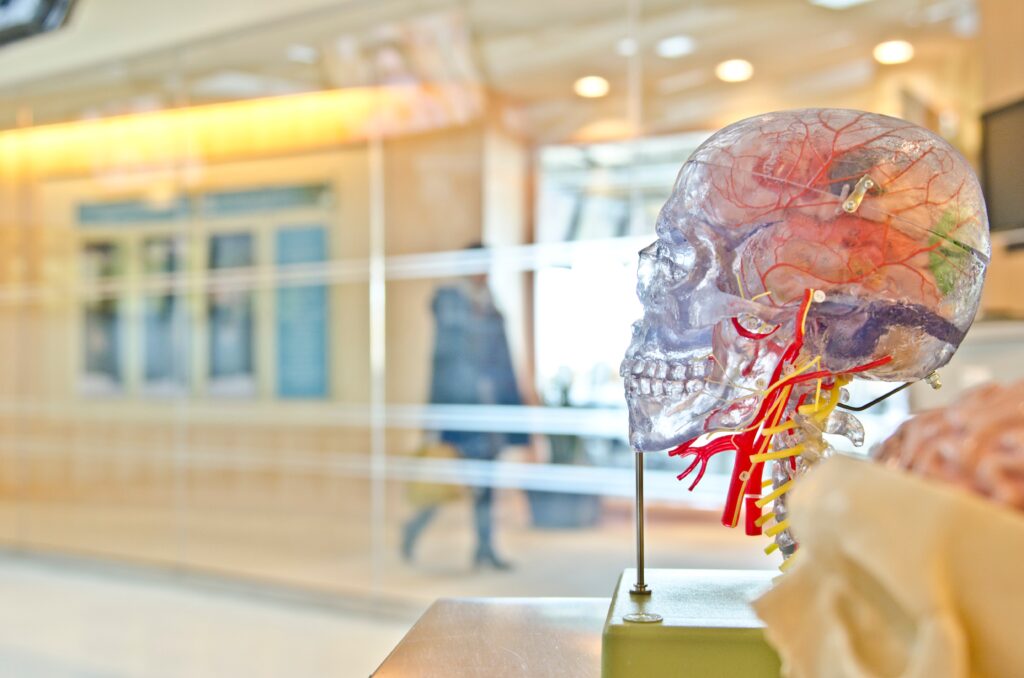One’s initial glance at the VCE Psychology Study Design can be daunting and a tad overwhelming, so we have simplified the study design into a concise overview before you tackle the real thing.
This article outlines each area of study within Units 1-4 of VCE Psychology, providing a broad scope of what is covered throughout the subject.
It is important to assess the entirety of the study design in great detail in order to conceptualise the key content and skills within your VCE Psychology learning and we are here to help you get started.
No matter where you are situated within the school year, the following study design breakdown can be used as a guide to measure how you are progressing and prepare for what is to come.
Let’s get stuck into it!
Unit 1 of the VCE Psychology Study Design
Unit 2 of the VCE Psychology Study Design
Unit 3 of the VCE Psychology Study Design
Unit 4 of the VCE Psychology Study Design
Unit 1 of the VCE Psychology Study Design
Within each unit of the VCE Psychology Study Design, you’ll be assessed upon distinct areas of study which can assist with categorising key knowledge in preparation for your assessments.
Unit 1 of VCE Psychology focuses on the shaping of behaviour and mental processes within three different areas of study. Let’s dive into the areas of study for Unit 1!
Area of Study 1: Brain Functioning
The first Area of Study within VCE Psychology centres around the functioning of the human brain in relation to behaviour and the mind through the examination of different parts of the brain and how they interact.
By becoming familiar with the structure and activity of the brain, you will explore the effects of brain damage and establish a foundational appreciation of how vital and precious the brain is to human existence.
Key Knowledge for Area of Study 1
At the end of each Area of Study within your study design, there’s a ‘Key Knowledge’ dot point list whereby the concise details of what can be included within assessment are described.
The ‘Key Knowledge’ section is incredibly helpful as it is already simplified and waiting for you!
Key Knowledge
The Key Knowledge for Area of Study 1 is a foundational understanding of the brain including the functions of the central and peripheral nervous system and is further important in terms of the progression of content covered later in VCE Psychology.
A good way to prep yourself for the VCE Psychology Study Design is printing out the ‘Key Knowledge’ pages of the study design and highlighting areas for improvement or concepts you would like to revisit as you conclude each area of study.
This will be useful when preparing for assessment so that you’ll instantly jog your memory in terms of where to begin preparation.
Accessing the study design now is a step ahead in visualising what is to come and getting into this habit early will help your future self immensely.
Area of Study 2: Influences on Psychological Development
The second Area of Study in Unit 1 focuses on the process of psychological development with an emphasis on how potential influences can affect development.
You’ll get to focus on various factors such as genetic and environmental prospects upon one’s cognitive, emotional and social development throughout the lifespan.
Key Knowledge for Area of Study 2
Engaging with your study design is vital in staying on top of the key knowledge as you will continue to build upon what you already know.
Key Knowledge
The second area of study in Unit 1 utilises the key knowledge from the first area of study in order to maximise one’s understanding of the brain developing whilst incorporating theorists and extraneous factors which can further affect development.
Connecting the content can be extremely helpful in developing a cohesive comprehension of your learning. Take advantage of your VCE Psychology Study Design!
Area of Study 3: Student-Run Research Investigation
The focus of Area of Study 3 is a student-run research investigation whereby students are encouraged to formulate their own research question or pick from a list provided to them within the study design.
Using key knowledge from the first two areas of study within Unit 1, students will embark upon a research project within the realm of brain function, presenting the findings within a chosen medium of written, oral and digital presentation.
Unit 2 of the VCE Psychology Study Design
In Unit 2, you’ll focus on how the external world can influence behaviour, feelings and thoughts and ultimately impact how one interprets themselves and the world around them.
Throughout the unit, you will explore the importance of perception and how social experiences can contribute to one’s mental and behavioural development.
Area of Study 1: How one’s perception is influenced and formed
By exploring how one’s perception of the world is influenced through a biological, psychological and social lens, the first Area of Study in Unit 2 will aid in your understanding of sensory experiences within everyday life.
The examination of the system of information transmission within the brain will form a base for future behavioural learning within Units 3 and 4.
Key Knowledge for Area of Study 1
Once again, let’s consult with the key knowledge for this Area of Study.
Key Knowledge
The introduction to concepts such as the role of sensory receptors and neural processing is fundamentally integral to your learning as a whole within the VCE Psychology course.
It can be helpful to grasp these concepts with a base for understanding more complex adaptations in the future.
Area of Study 2: Determining the Influences Upon one’s Behavioural Patterns
Focusing on one’s behaviour in both a group and individual setting is analysed. Here, you’ll learn to grasp the cognitive influences and external factors which affect a person’s behaviour within Area of Study 2.
Through the understanding of various behavioural theorists (disclosed within the key knowledge), the positives and negatives of media upon one’s psychological function are debunked.
Key Knowledge for Area of Study 2
Key Knowledge
The content within the second Area of Study within Unit 2 will be eye opening in terms of how prejudice and biases are formed.
Additionally there are real life inferences to be taken into your own relationships and interactions whereby your study design is a shortcut to understanding such complex phenomena.
Area of Study 3: Student-run practical investigation
To conclude your first year of VCE Psychology study, you’ll be immersed in a research project whereby you will formulate your own hypothesis and acquire fundamental skills for the year to come.
Conducting a qualitative or quantitative research investigation into your choice of an internal, external or combination of influences upon one’s behaviour, utilising key skills in the production of a scientific report.
The investigation is a practical introduction to the world of research and key terms such as hypothesis, primary data, method, evidence, discussion and analysis of data.
Unit 3 of the VCE Psychology Study Design
The focus of Unit 3 is to distinguish how behavioural and mental processes are influenced by experience. You’ll draw from your knowledge from Units 1 and 2.
Unit 3 addresses the body’s psychological and physiological response to stress in addition to the neural basis and processes of learning and memory within each respective area of study.
Area of Study 1: The Role of the Nervous system in Psychological Functioning
The complex and interesting first Area of Study within Unit 3 is an exploration of the structure of the nervous system, how it functions and the multiplicity of ways in which the body experiences stress.
A thorough understanding of how the nervous system works in relation to the rest of your body and the biological, psychological and social factors that can influence the system’s functioning will complement knowledge on how stress can be managed.
Key Knowledge for Area of Study 1
The first area of study within Unit 3 can be a lot to digest, debunking the nervous system takes some serious brain power and the key knowledge section within the VCE Psychology Study design and you should be closer than ever.
Key Knowledge
The concise list of key knowledge focuses on the role of the neuron and neurotransmitters is waiting for you. Remember the assessment can only include what is disclosed in the study design, therefore in the midst of such expansive content, the study design can help you mitigate what is not necessary to learn and compliment your time management skills.
There’s no need to shuffle through your notes and workbooks in order to prepare for the upcoming SAC, you can use the key knowledge list. The terminology in this section is useful to build your notes around what is essentially a checklist provided by the study design.
Tip: Familiarise yourself with the structure of a neuron and how messages are fired around your body everyday is a fulfilling and enlightening process!
Area of Study 2: The process of learning and memory
The second and final area of study for Unit 3 is packed with vital and exciting content!
You will explore the neural basis of learning and memory and various models to explain learning in this VCE Psychology Study Design.
This covers the essential models of classic and operant conditioning as well as the process and rehabilitation of memory. Overall, this area of study will focus on the processes of learning and how your brain combats information retention.
Tip: Simplify your study content by using cue cards. Begin with cue cards highlighting what you need to know and progress into content filled cue cards.
Key Knowledge for Area of Study 2
The various learning theories might seem overwhelming and complex. However, viewing a concise summary of the key knowledge can assist in breaking down your own learning.
Key Knowledge
Harness the multiple models to explain learning so you can apply your knowledge to both SACS and the upcoming exam.
Unit 4 of the VCE Psychology Study Design
Throughout Unit 4, you’ll harness concepts from Units 1, 2 and 3 in understanding the concept of wellbeing.
Through the three areas of study in Unit 4, you’ll distinguish how one’s wellbeing is both developed and maintained by learning about consciousness and mental health.
Let’s get started on the final unit of VCE psychology!
Area of Study 1: How does the Presence of Consciousness Attribute to one’s Cognitive and Behavioural existence
The first Area of Study within Unit 4 focuses on the phenomena of consciousness, harnessing both a psychological and physiological lens for the measurement of consciousness whereby consciousness is studied on a spectrum.
You’ll also analyse how consciousness can be changed and the importance of sleep upon one’s biological, social and psychological rhythm.
Key Knowledge for Area of Study 1
To get you started off on this Area of Study, base your study blocks off of the different categories within the key knowledge section.
Key Knowledge:
You’ll come across complex terms such as the physiological measurements of different states of consciousness such as electroencephalograph (EEG), electromyograph (EMG), electro-oculograph (EOG).
Area of Study 2: How is Mental Wellbeing Affected
The mental health Area of Study within Unit 4 is an eye opening and informative part of the VCE Psychology Study Design.
You’ll define the concept of mental health, highlight the abundance of factors that contribute to mental health and its progression, explore and apply the bio-psychosocial model to a specific phobia and investigate the maintenance of mental health.
This particular Area of Study is intrinsic to real-world experience as you make your way out of the schooling system and become an adult.
Key Knowledge for Area of Study 2
The second Area of Study within Unit 4 is quite content heavy in terms of the depth within each key knowledge dot point.
Tip: Do weekly check-ins with the key knowledge page, perhaps printing it out and highlighting areas you feel need more clarification and attention.
Further to this, it could be helpful to print out the key knowledge for each area of study within every unit and hang them up on your wall in preparation for exams.
Constantly checking in with self-dialogue about how you are tracking can be extremely useful in keeping on top of your revision throughout the year and in exam period.
Area of Study 3: Practical Investigation
You’ve made it! The final Area of Study for the VCE Psychology Study Design, congratulations!
The practical investigation within Unit 4 is a chance for you to showcase all of the key skills that you have worked hard for.
The task asks you to conduct a research experiment within the form of a scientific poster and present the identified:
- Aim
- Formulated research hypothesis
- Operationalised variables
- Method
- Evidence
- Results
- Analysis
- Evaluation
- Discussion (including ethical considerations, validity of the data and identified limitations of the experiment)
- Conclusion
It’s an exciting opportunity to conduct a piece of research which encompasses your VCE Psychology learnings and a cohesive task in preparation for the upcoming exam.
You’ve got this!
Key Knowledge for Area of Study 3
The key knowledge for the last area of study in VCE Psychology is essentially a concise outline of what the practical investigation expects of you and how you can maximise your skills in a cohesive and interesting research report.
That’s a wrap!
You’ve been practising these skills since Unit 1 and have tangible experiences with discussion sections and validating your methods for example. Go forth and go beyond!
Want to boost your chances of acing your exams? Read our other articles on VCE Psychology:
Take a stab at our practice SACs!
- VCE Psychology Unit 3 AOS 1 Practice SAC
- VCE Psychology Unit 3 AOS 2 Practice SAC
- VCE Psychology Unit 4 AOS 1 Practice SAC
Are you looking for some extra help with preparing for the VCE Psychology Study Design?
We have an incredible team of VCE tutors and mentors!
We can help you master the VCE Psychology Study Design and ace your upcoming VCE assessments with personalised lessons conducted one-on-one in your home or online!
We’ve supported over 8,000 students over the last 11 years, and on average our students score mark improvements of over 20%!
To find out more and get started with an inspirational VCE tutor and mentor, get in touch today or give us a ring on 1300 267 888!
Evie Warnes is a Content Writer for Art of Smart and a current undergraduate student, completing her final year at the University of Melbourne. She studies a Bachelor of Arts majoring in Criminology and minoring in Indigenous Studies. In her free time she loves to walk, create videos and hang out with friends. After graduating, Evie hopes to do a Post-Grad in Film and Television and travel overseas.







